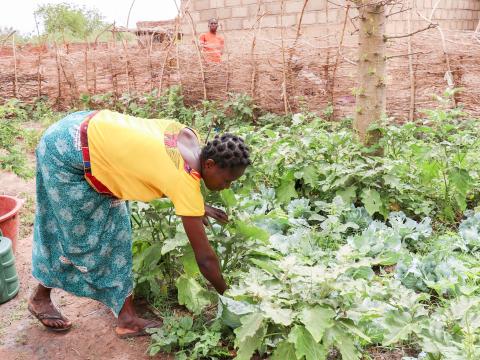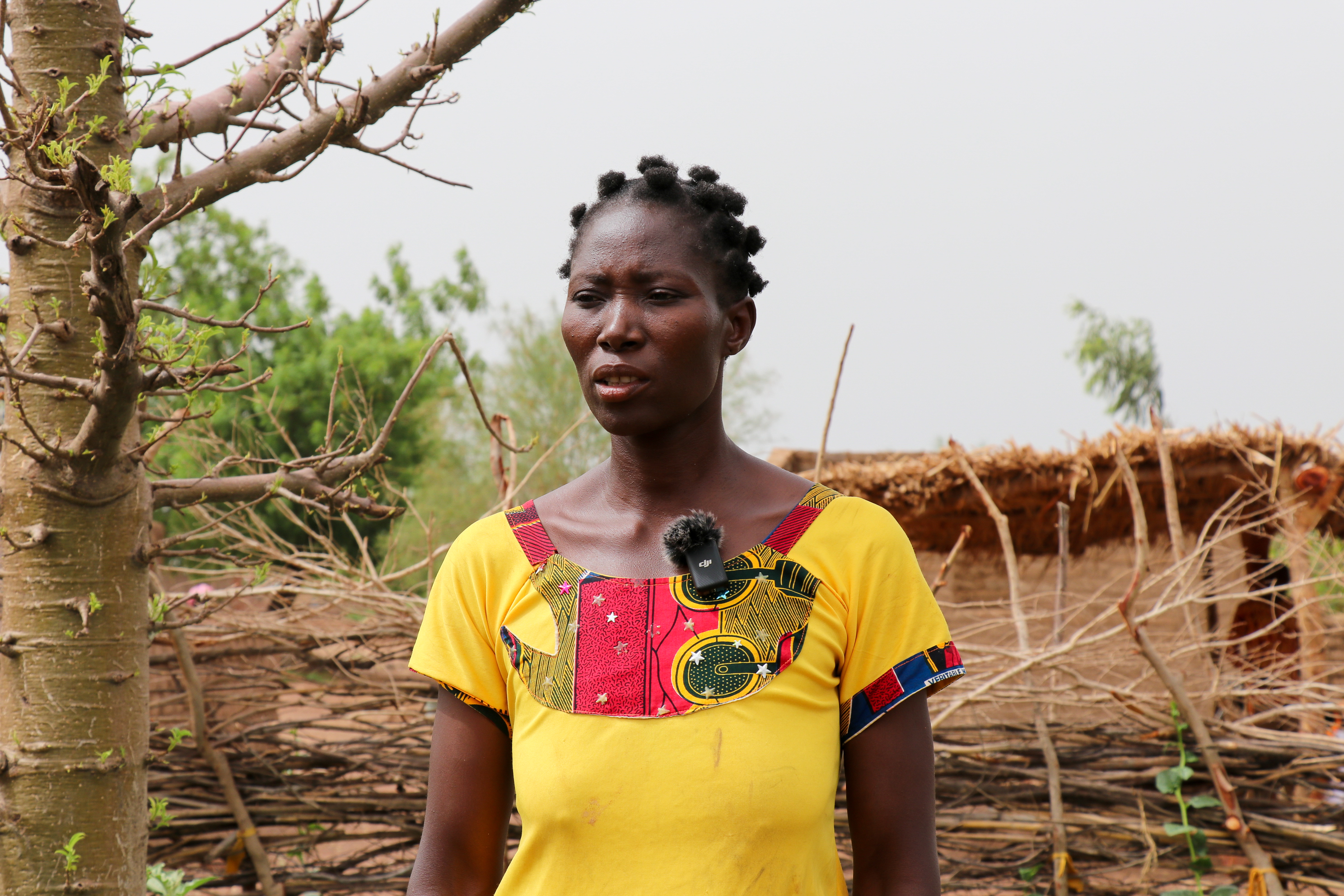Burkina Faso: Family gardens sustain fight against malnutrition

By Mohamed El Habib Cisse, Communication officer, WV Burkina Faso
Cécile is a mother of seven who lives in the village of Passakongo in the Dédougou Health District. Thanks to a malnutrition prevention project implemented by World Vision with support from UNICEF, she is now an inspiring example of resilience and transformation.
Prior to joining the programme, Cécile struggled to feed her family a balanced diet. Poor harvests, exacerbated by a poor farming season, made the lean period particularly challenging. However, her situation improved significantly when she was included in the project to implement an integrated nutrition assistance package in the Boucle du Mouhoun region.
As part of the project, she participated in several awareness sessions on good nutritional practices. She also received a kit containing tools, fertilisers and seeds to set up a home vegetable garden.
'Thanks to the project's support, I was able to set up a vegetable garden at home. I grow okra, cabbage, aubergines and tomatoes. Some of the produce feeds my family and the rest is sold at the market. This generates extra income and has transformed our daily lives,' she says proudly.
 The results are clear: the quality and quantity of family meals have both improved significantly. Vegetables from the garden enrich the daily diet, while the additional income helps to purchase other essentials, such as meat. This small garden has become a true lifeline, particularly during the dry season when water is scarce and resources are limited.
The results are clear: the quality and quantity of family meals have both improved significantly. Vegetables from the garden enrich the daily diet, while the additional income helps to purchase other essentials, such as meat. This small garden has become a true lifeline, particularly during the dry season when water is scarce and resources are limited.
'With the water shortage, we’ve learned to use what we have wisely. This project empowers us. We produce food for ourselves and our children. It’s very rewarding," adds Cécile.
Like her, over 300 women in the region have received home garden kits. This innovative approach by World Vision puts households, particularly mothers, at the heart of efforts to prevent malnutrition.
According to Rosalie Nanéma, Monitoring and Evaluation Officer at World Vision:
"We wanted to trial a new strategy that would empower mothers. They were trained to screen their own children for malnutrition using a MUAC tape, enabling early referral and treatment. The gardens, in turn, provide them with a reliable source of healthy, nutritious food".
Thanks to this UNICEF-funded project, supported by the European Union and the Government of Canada, over 50,000 children have been screened and treated, and thousands of mothers have undergone GASPA training (GASPA stands for 'Learning and Monitoring Groups for Infant Feeding Practices') to learn how to prepare infant meals more effectively.
Cécile’s story exemplifies the transformative power of community engagement. By investing in local capabilities, the project is empowering families to build healthier and more self-reliant futures.